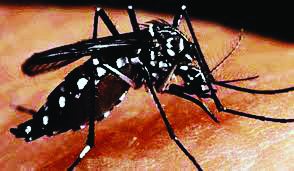‘Significant decrease in dengue cases compared to last year’

BALURGHAT: This year, South Dinajpur has seen a significant decrease in dengue cases compared to last year, with 590 cases reported so far, down from 1,026 cases during the same period last year. Notably, no dengue-related deaths have been reported this season.
District Magistrate Bijin Krishna stated: “Till date, around 27,000 dengue tests have been conducted, surpassing the 25,000 tests conducted last year. Despite the higher number of tests, the dengue positivity rate stands at 2.17 per cent this year, a notable decrease from last year’s 4.3 per cent. Additionally, dengue positivity rates are higher in rural areas (90 per cent) compared to urban areas (10 per cent).” Currently, there are 14 dengue patients admitted to hospitals, with 8 in Balurghat District Hospital and 6 in Gangarampur Hospital. The Balurghat Block has recorded the highest number of cases, particularly in the Amritakhanda and Chingishpur Gram Panchayat areas. Special surveillance is being conducted in these regions by the South Dinajpur district administration and the Health department. Monitoring is also in place to prevent potential dengue clusters.
The surge in dengue cases was noted during the festive season, with over 60 cases reported within a single week of the Puja celebrations. To combat this, the district administration has implemented several preventive measures. Health workers are conducting house-to-house visits to monitor fever cases and provide guidance on dengue prevention. Fever clinics have been set up in hospitals across the district and despite the initial spike, the situation remains under control. Bijin Krishna stated: “Since January, there have been 590 cases in the district, with data collected over the last 43 weeks. We will continue monitoring dengue closely until the second week of November. Compared to last year, the number of cases has significantly decreased and no specific village or area has shown a major outbreak. Additionally, we have conducted a greater number of dengue tests this year.” Apart from dengue, the district Health department is also taking steps to prevent filariasis. Although no confirmed cases of lymphatic filariasis have been reported, officials remain vigilant. Sample testing for filariasis will begin in November, focusing primarily on rural areas.
Testing, which will be conducted at night, involves collecting samples from 300–350 individuals aged 20 and above from identified locations. A sample collection and testing team will be formed for this initiative, covering 22 areas across the district.



